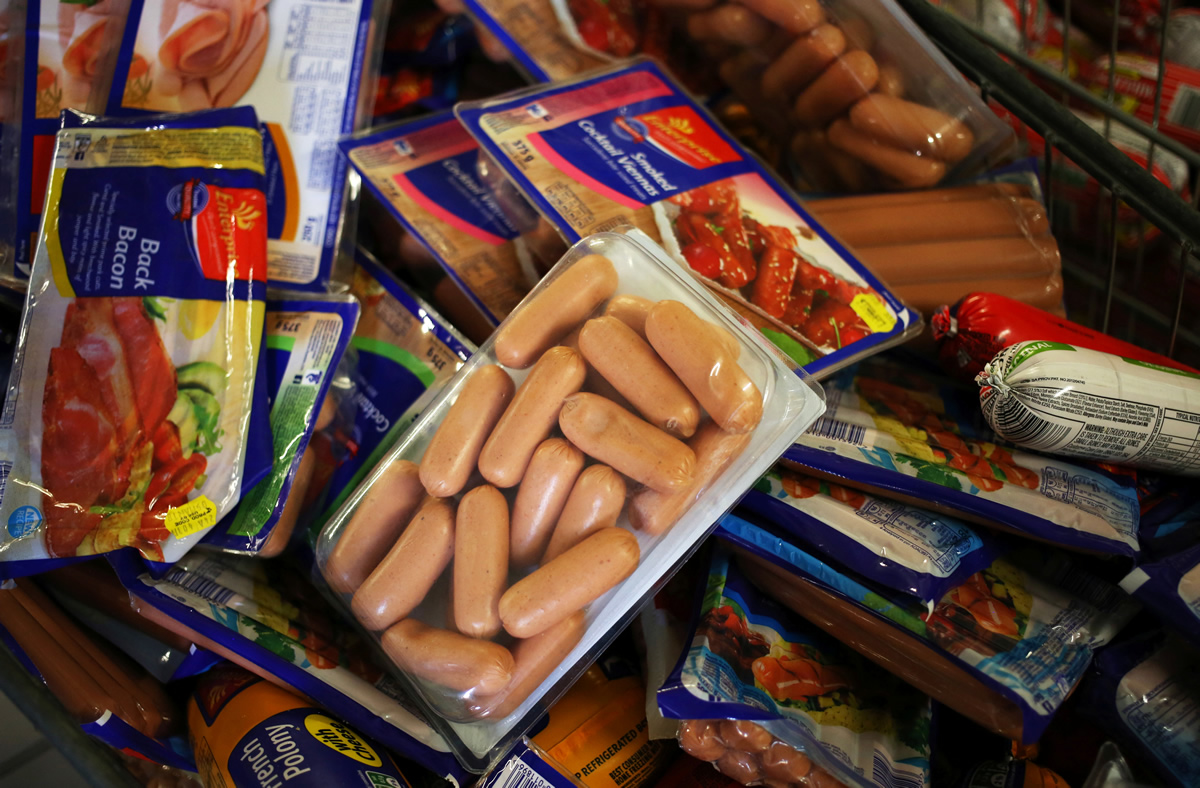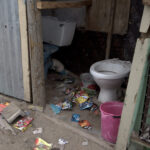The head of the National Institute for Communicable Diseases’ listeria investigation, Juno Thomas, tells us which foods to bin and how.
At midnight on 4 March, scientists at the National Institute for Communicable Diseases (NICD) finally found the source of South Africa’s listeria outbreak: polony from Enterprise Foods’ Polokwane factory. Polony from Enterprise’s Germiston site and Rainbow Chickens Limited (RCL) Foods’ Free State factory is also under investigation.
Both companies have been ordered to stop production and recall their products.
So should you bin all your polony? And what about your other meat?
We give you the low-down.
1. Enterprise polony is a definite culprit. But it doesn’t end there.
It’s not just Enterprise and RCL’s polony you need to avoid. Other ready-to-eat meat products such as viennas and russians from implicated production sites could also have become contaminated.
The listeria germ is a robust bacterium that can survive in just about any environment — humid, cold, wet or dry, Thomas says. These characteristics make it easy for the bug to move around in factories and contaminate other food products.
Thomas explains: “The bacteria could get stuck on pallets used to move foods. It could stick to the crates goods are packed in. It will survive just about anywhere.”
2. Your Woolies ham is problematic too
Enterprise’s Polokwane packages food for Woolworths, according to the Enterprise Foods website. Woolies products could therefore also have been contaminated.
Woolworths on Monday urged its customers to return processed meat products like ham, chorizo sausages and salami.
More brands may be implicated as the NICD’s investigation continues. “Viennas and other prepared meats must be avoided, even from companies that are not being recalled,” Health Minister Aaron Motsoaledi told journalists at a press briefing on Sunday.
Enterprise Foods did not respond to requests for comment.
3. So what if you cook your ham and bacon?
Meats that are typically cooked before eating, such as bacon, will not cause illness, Thomas says. Why? Because cooking at high temperatures kills the listeria germ.

4. Bin that cold meat, but not in the actual bin
You’re going to have to bid your polony and other cold meat products farewell. If your viennas or russians were kept in your freezer, they still have to go.
Even the plastic casings that cover the polony have tested positive for the outbreak strain of listeria, Thomas says.
Uncovered products in your fridge that have been in direct contact with contaminated polony will have to go too.
But here’s the thing: throwing contaminated foods in a household bin could cause a further health hazard. Other people, such as people looking for food, could still mistakenly eat the the products. The only way to safely discard of contaminated food is to incinerate it, Thomas says.
She explains: “Ideally, you should put all these meats in a package and return it to the shop you bought it from. The manufacturer will come and collect it from them.”
Municipalities can also be called on to help, Thomas says. “If it’s closer, you can take the food to your local municipality — they will make sure the products are thrown away safely.”
5. Good old Jik will do the trick
Once your kitchen is free of polony and other cold meats, you’ll have to make sure even tiny traces of the contaminated foods are dealt with.
There are very few things that can kill listeria. Once the bacteria settles on a surface, it produces a layer of slime that sticks it down firmly.
But Thomas has a magic recipe:
- Wipe the surfaces and the inside of your fridge with soap, like Sunlight, and warm water;
- Mix one teaspoon of bleach with one litre of hot water;
- Scrub down the kitchen surfaces, utensils, and the inside of your fridge.
6. Don’t panic – not everyone will get sick
Most people who eat listeria-infected food will not get sick. But those with weakened immune systems might.
Who could that be? People with HIV or diabetes, for instance. Or someone who is undergoing chemotherapy. Pregnant women also have weaker immune systems and are therefore more susceptible to the disease. Unborn babies can contract listeria from their mothers in the womb and be born with it. Almost 40% of cases in South Africa have occurred among children younger than one month, the latest NICD data shows.
People older than 65 also have weakened immune systems and are at risk of listeria.
Joan van Dyk was a health journalist, senior health journalist and news editor at Bhekisisa between 2017 and 2023.




